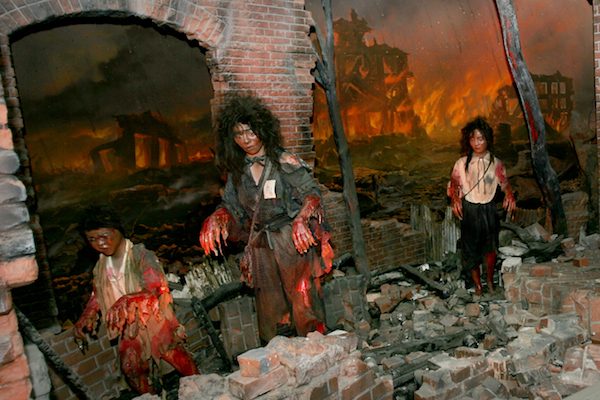
Even from the Australian bushfires in 2019-20 there’s evidence that about a million tonnes of soot went into the southern hemisphere’s atmosphere and the southern hemisphere cooled by a fraction of a degree because of that.” “When there have been volcanic eruptions, there have been food shortages. “The effects of soot have been observed in the past,” says co-author Dr Ryan Heneghan, a lecturer and postdoctoral fellow at Queensland University of Technology’s School of Mathematical Sciences. This soot would cool the globe, causing crops to fail. In addition to devastating death and destruction on an untold scale, each of these scenarios would vent millions of tonnes of soot into the atmosphere. The largest represents a war between the USA and Russia, with additional attacks on France, Germany, Japan, the UK, and China.

The smallest represents a nuclear war between India and Pakistan, based on their weapons stockpiled in 2008. The international team of researchers outline six scenarios, each based on different-sized conflicts. The research, which is published in Nature Food, examines how a “nuclear winter” caused by regional nuclear wars would affect food security. But in both scenarios, the modelling predicts that Australia would be one of the few places to stay fed. All abuzz: How bees and other swarming insects electrify the atmosphereĮxperts have predicted a “small” nuclear war would leave a quarter of a billion people without food and a large regional conflict would raise that number to five billion.

Multi-celled animals may have evolved thanks to “wildly fluctuating” oxygen levels a billion years ago.The crucial heat absorption of the Southern Ocean.Aerosols– do they make more clouds or brighter clouds?.The Kremlin said today it would be willing to halt operations if its conditions were met.

"Escalation is also inevitable in the economic war," he added. "Only at the edge of the global cliff might Russia see the West blink and give him his new empire," Every said in a note. Michael Every, strategist at RaboResearch, pointed out a tweet featuring the BCA note and said that logically, "the only way Putin can now achieve anything lasting is via further brinksmanship." "Thus, from a purely financial perspective, you should largely ignore existential risk, even if you do care about it greatly from a personal perspective." "If an ICBM is heading your way, the size and composition of your portfolio becomes irrelevant." "Despite the risk of nuclear war, it makes sense to stay constructive on stocks (NYSEARCA: SPY) (NASDAQ: QQQ) over the next 12 months," the team said. "Google searches for nuclear war are already spiking." (See their graphic below.) "Even if World War III is ultimately averted, markets could experience a freak-out moment over the next few weeks, similar to what happened at the outset of the pandemic," BCA added.

"Although there is a huge margin of error around any estimate, subjectively, we would assign an uncomfortably high 10% chance of a civilization-ending global nuclear war over the next 12 months," the Montreal-based independent research provider wrote in a note. If Vladimir Putin comes to the conclusion that he has no future he may well decide nobody else should have a future either, BCA Research says.


 0 kommentar(er)
0 kommentar(er)
